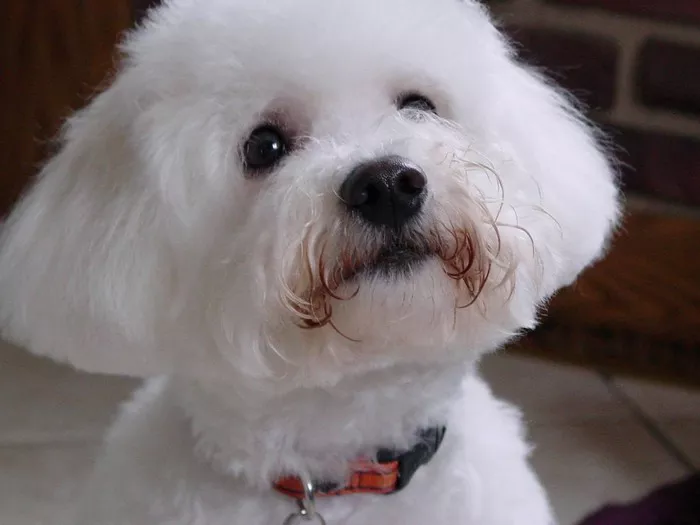Bichon Frise puppies are beloved for their charming personalities, fluffy coats, and playful demeanor. If you’re considering adding one of these adorable companions to your family, it’s essential to understand the costs involved. From the initial purchase price to ongoing expenses, owning a Bichon Frise requires careful consideration and planning.
Introduction to Bichon Frise Puppies
The Bichon Frise is a small breed known for its cheerful disposition and affectionate nature. Originating from the Mediterranean, these dogs have captured the hearts of dog lovers worldwide. With their fluffy white coats and dark, expressive eyes, Bichon Frises exude charm and charisma. They are highly social animals that thrive on human companionship, making them excellent family pets.
Bichon Frises are known for their playful and mischievous personalities. They enjoy interactive games and activities, making them ideal companions for families with children or active individuals. Despite their small size, Bichon Frises are robust and energetic, requiring regular exercise to keep them happy and healthy.
Average Cost of a Bichon Frise Puppy
The average cost of a Bichon Frise puppy can vary significantly depending on various factors. On average, you can expect to pay anywhere from $500 to $2,500 for a Bichon Frise puppy from a reputable breeder. However, prices can go higher for puppies with exceptional lineage or show-quality traits.
Several factors can impact the cost of a Bichon Frise puppy, including:
Location: Prices may vary based on geographic location, with puppies in urban areas typically commanding higher prices.
Breeder Reputation: Reputable breeders who prioritize health testing, socialization, and responsible breeding practices may charge more for their puppies.
Lineage: Puppies from champion bloodlines or with desirable traits may be more expensive than those without pedigree.
Age: Older puppies or adults may be available at a lower cost compared to younger puppies.
It’s essential to do thorough research and avoid purchasing from puppy mills or backyard breeders, as they often prioritize profit over the health and well-being of the dogs.
Factors That Impact the Cost of a Bichon Frise Puppy
Several factors can influence the cost of a Bichon Frise puppy, including breeder reputation, lineage, and location. Reputable breeders invest time and resources in health testing, socialization, and proper care for their puppies, which can contribute to higher prices. Additionally, puppies from champion bloodlines or with show-quality traits may command premium prices.
On the other hand, adopting a Bichon Frise from a shelter or rescue organization can be a more affordable option. While adoption fees vary, they often include vaccinations, spaying/neutering, and microchipping, making them a cost-effective choice for prospective dog owners.
Where to Find Reputable Breeders
When searching for a Bichon Frise puppy, it’s crucial to find a reputable breeder who prioritizes the health and well-being of their dogs. Some resources for finding reputable breeders include:
Breed Clubs: Contacting breed-specific clubs or organizations can help you connect with reputable breeders who adhere to breed standards and ethical breeding practices.
Online Directories: Websites like the American Kennel Club (AKC) or the Bichon Frise Club of America maintain directories of breeders who meet their standards for responsible breeding.
Referrals: Asking for recommendations from veterinarians, dog trainers, or other Bichon Frise owners can help you find trustworthy breeders in your area.
When evaluating breeders, look for signs of responsible breeding practices, such as health certifications, genetic testing, and a commitment to the well-being of their dogs. Avoid breeders who prioritize profit over the health and welfare of their puppies.
Adoption Options
If you’re open to adopting a Bichon Frise, there are several options available. Animal shelters, rescue organizations, and breed-specific rescues often have Bichon Frises and Bichon Frise mixes available for adoption. Adoption fees typically range from $50 to $500 and may include vaccinations, spaying/neutering, and microchipping.
Before adopting a Bichon Frise, it’s essential to consider the dog’s history, temperament, and any potential behavioral or medical issues. Many rescue organizations provide thorough evaluations of their dogs and offer support and resources to adopters to ensure a successful transition.
Additional Costs to Consider
In addition to the initial purchase or adoption fee, there are several ongoing costs associated with owning a Bichon Frise. These may include:
Veterinary Care: Regular check-ups, vaccinations, and preventative care are essential for maintaining your Bichon Frise’s health and well-being.
Food: Providing high-quality dog food tailored to your Bichon Frise’s nutritional needs is essential for their overall health and vitality.
Grooming: Bichon Frises have a long, curly coat that requires regular grooming to prevent matting and maintain cleanliness.
Training and Socialization: Investing in obedience training and socialization classes can help your Bichon Frise develop good manners and behavior.
Supplies: Other expenses may include toys, bedding, grooming tools, and other supplies to keep your Bichon Frise happy and comfortable.
Conclusion
The cost of a Bichon Frise puppy can vary depending on several factors, including breeder reputation, lineage, and location. While purchasing from a reputable breeder ensures the health and well-being of your puppy, adoption is a cost-effective option that provides a loving home to dogs in need.
By understanding the average cost range for purchasing a Bichon Frise puppy and considering the factors that impact the cost, you can make an informed decision that aligns with your budget and lifestyle. Whether you choose to purchase from a breeder or adopt from a rescue organization, providing a loving home to a Bichon Frise is a rewarding experience that brings joy and companionship for years to come.


